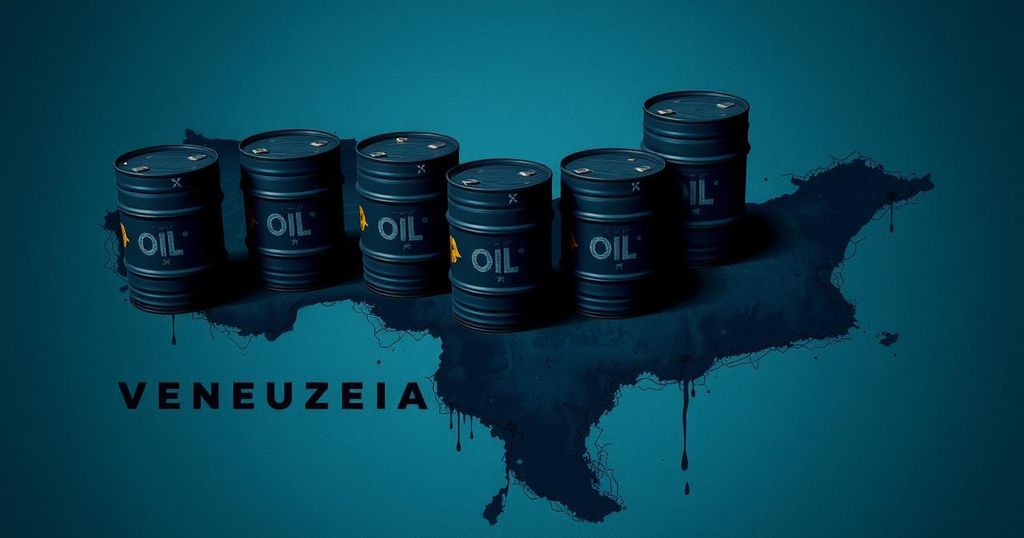Trump revokes export permissions for Chevron and foreign oil companies from Venezuela, intensifying economic pressure on Maduro’s regime. This follows allegations of electoral fraud and concerns over criminal activities associated with Venezuelan nationals in the U.S. The move solidifies Trump’s confrontational diplomatic stance and is part of a larger sanction strategy.
The Trump administration is intensifying economic sanctions against Venezuela by revoking export permissions for crude oil, targeting both American and foreign companies. Previously, Trump withdrew Chevron’s operating authorization, now extending the ban to companies like Repsol from Spain, Eni from Italy, Maurel & Prom from France, and Reliance Industries from India. This move is part of a broader strategy to exert pressure on Venezuelan President Nicolás Maduro amid existing U.S. sanctions.
The reasoning behind Trump’s actions is linked to Venezuelan President Maduro’s controversial governance, where he secured a third term amidst allegations of election fraud. Over 7.7 million Venezuelans have fled under his rule, impacting U.S. immigration policies. Trump has pointed to alleged criminal activities linked to Venezuelan nationals as justification for his stringent measures, stating that they have infiltrated the U.S.
In recent diplomatic engagements, Trump has maintained a confrontational stance, with this Venezuelan oil embargo reflecting his administration’s attitude toward trade issues. While there have been fluctuations in other sanctions, this particular restriction on Venezuelan oil seems poised to remain in place, solidifying the U.S.’s firm position against Maduro’s regime.
Trump’s revocation of oil export permissions for U.S. and foreign companies marks a significant ramp-up in economic pressure on Venezuela, reflecting ongoing tensions due to President Maduro’s controversial rule. Given the broader implications on U.S. immigration policy and ongoing trade conflicts, this measure showcases a steadfast approach by the Trump administration in handling relations with Venezuela.
Original Source: en.as.com






